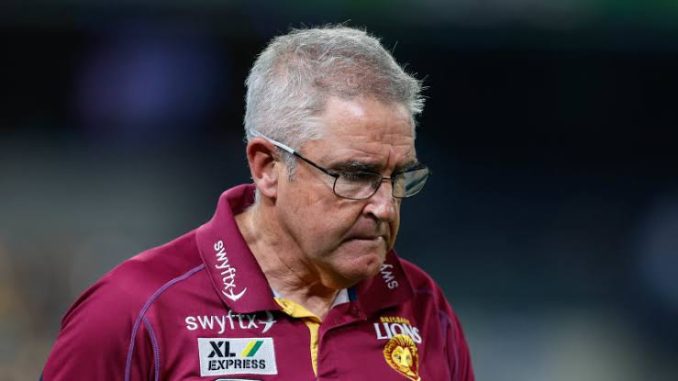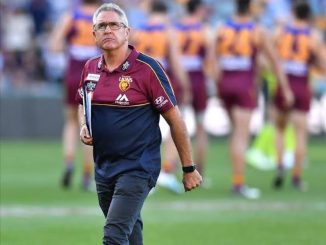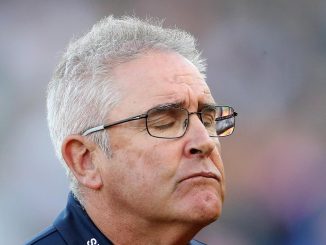
Coach Chris Fagan Talks Racism at Brisbane Lions: A Call for Change
In recent years, the issue of racism in sports has become a critical topic of conversation across the globe. In Australian football, the AFL has been at the forefront of addressing this deep-rooted problem, with high-profile players and coaches taking bold steps to promote inclusivity. One such voice leading the charge for change is Brisbane Lions coach Chris Fagan.
A Candid Discussion on Racism
Chris Fagan, known for his thoughtful and empathetic approach to coaching, has used his platform at the Brisbane Lions to speak openly about the need for change in the culture of Australian football. In a recent interview, Fagan didn’t shy away from discussing the challenges of racism within the AFL community. He emphasized that the issue wasn’t just a matter of isolated incidents but a deeper cultural problem that requires systemic change.
“Racism isn’t just a few bad apples. It’s a reflection of societal attitudes that have existed for far too long,” Fagan said. “As a club, we have a responsibility to confront this issue head-on, not only for our players but for the broader community. The game should be a place where everyone, regardless of their background, feels welcome and valued.”
Fagan’s remarks come after several instances of racial abuse faced by players, both within the AFL and in the wider sporting community. While the league has implemented policies aimed at combating racism, including the “Respect and Responsibility” framework and cultural education programs, Fagan believes more needs to be done.
The Importance of Leading by Example
Fagan’s leadership has been a beacon of inclusivity at the Brisbane Lions, where players of various cultural backgrounds are an integral part of the team. He has emphasized that his role as a coach goes beyond tactics and team strategy—it’s also about shaping the character of the club. “I’m not just a coach of players; I’m a coach of people,” Fagan remarked. “Our job is to create an environment where respect is not optional, but mandatory.”
At the Brisbane Lions, the emphasis on cultural awareness and diversity has been a defining feature of the club’s identity under Fagan’s tenure. The Lions have seen players from diverse ethnic backgrounds thrive in the team, including Indigenous Australian stars like Charlie Cameron and Dayne Zorko, whose presence has not only enriched the squad but also brought visibility to the club’s commitment to inclusivity.
However, despite these strides, Fagan acknowledges that there is always work to be done. He stresses that the fight against racism is ongoing, and it requires the collective effort of players, coaches, and the broader AFL community.
A Call for Systemic Change
In his recent discussions, Fagan has called for broader systemic changes in the way racism is dealt with at all levels of the AFL. While he praised the league’s efforts to create more inclusive environments, he believes that the football community needs to look beyond punishment for incidents of racism and focus on prevention. Fagan has advocated for more widespread education on cultural sensitivity, for players to be given stronger platforms to voice their experiences, and for an ongoing dialogue about how the sport can evolve.
“We can’t just react when something happens,” he stated. “We need to be proactive in shaping a culture that rejects racism in all its forms. This isn’t just about the AFL; it’s about creating a society where respect for others is the norm, not the exception.”
Fagan’s call for change resonates with many within the AFL, but it also extends beyond the sport itself. His remarks echo a wider cultural shift in Australia that has been gaining momentum in recent years. From addressing the underrepresentation of Indigenous Australians in leadership positions to confronting the legacy of colonialism, the push for reconciliation and respect has become a national conversation.
The Role of the Fans
While much of the responsibility lies with players, coaches, and officials, Fagan also believes that fans play an essential role in combating racism in sport. He highlighted that racism often manifests in the stands, with players subjected to taunts and abuse from spectators. For Fagan, this underscores the need for a collective commitment from everyone involved with the game—players, coaches, officials, and fans alike—to foster an environment of mutual respect.
The Brisbane Lions have already taken steps to ensure that fans who exhibit racist behavior are held accountable, and Fagan believes that such actions set a standard for other clubs in the AFL.
Moving Forward
As the AFL continues to grapple with issues of racism, Chris Fagan’s candid stance provides a powerful reminder that change is not just necessary—it’s inevitable. For the Brisbane Lions, the journey toward a more inclusive future is already underway, but Fagan is clear that there is no room for complacency.
“We’ve made strides, but we haven’t won the battle yet. The conversation has to continue, and the actions have to follow. We can’t stop here. The next generation of players, fans, and coaches deserves better,” Fagan said.
The call for change that Fagan has amplified is one that extends far beyond football. It’s a call for a culture where respect, inclusivity, and understanding replace prejudice and division. In this battle, the Brisbane Lions, under Fagan’s leadership, are leading by example. However, the success of this movement will ultimately depend on whether the entire AFL community—and indeed, society at large—can rise to meet the challenge.
In the end, the fight against racism in sport is not just about confronting those who perpetuate harm; it’s about creating spaces where everyone is free to be themselves, without fear of discrimination. That is the future Chris Fagan is striving for, and with leaders like him at the forefront, the future looks promising.



Be the first to comment